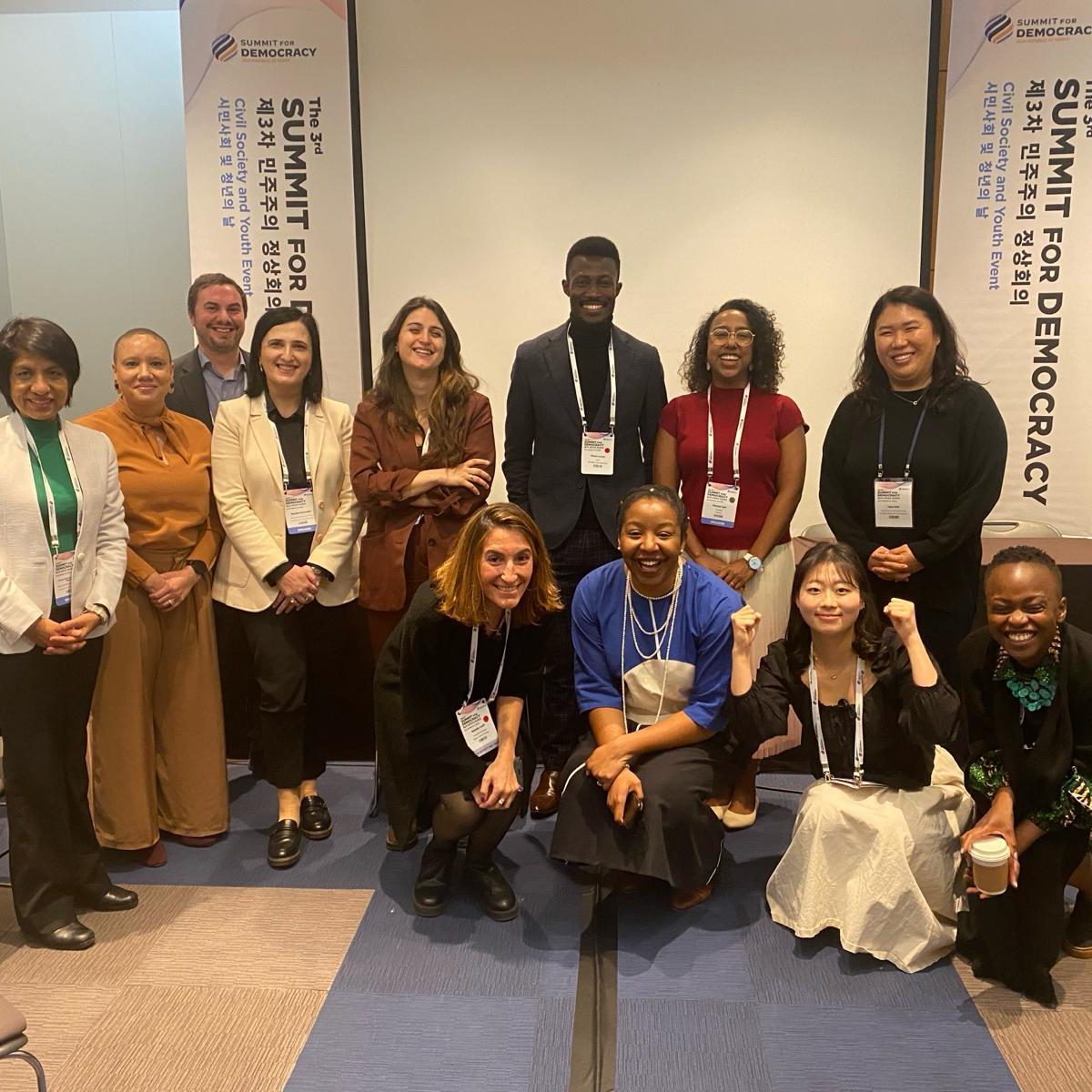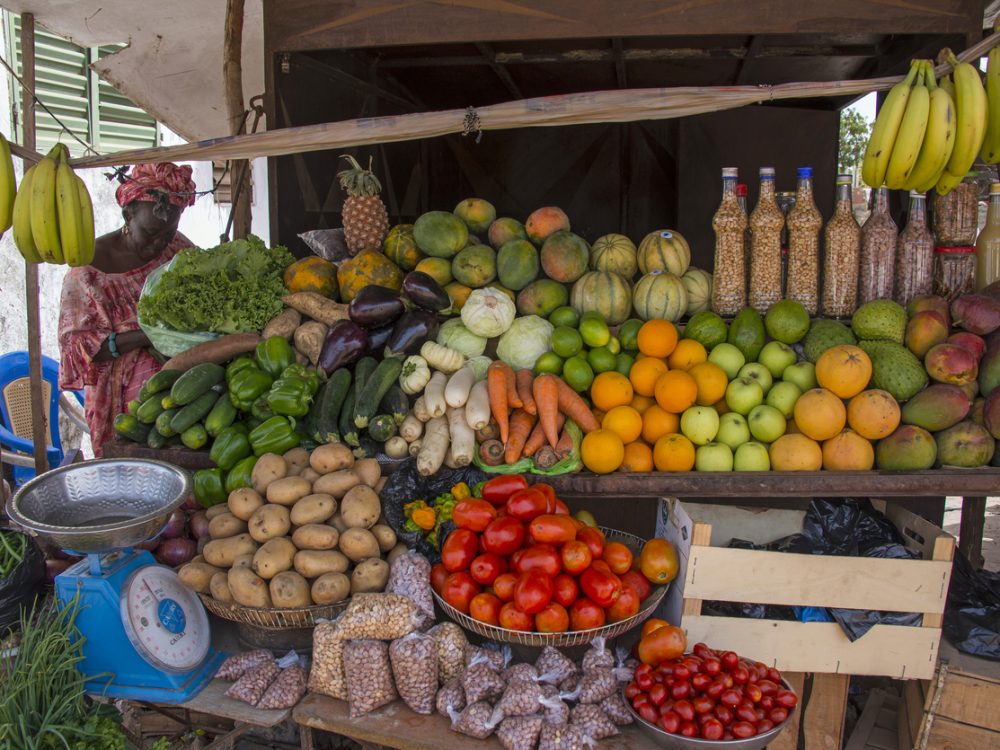
Technology for a Stronger Democracy? Key Insights from the Third Summit for Democracy
The Summit for Democracy recently convened in Seoul, South Korea, continuing US President Joe Biden’s global push for strengthening democracy in a year of many elections and challenges to democracy. The Summit featured a number of high-level discussions and breakout sessions, bringing together hundreds of participants from democratic governments, civil society, and the private sector to focus on the most pressing issues facing democracy. Development Gateway: An IREX Venture (DG) led a session on national commitments to technology as a driver for strengthening democracy and combating corruption. Our panel of experts from diverse specializations discussed specific recommendations to improve safe technology use to strengthen democracy. From that conversation, three important insights stood out.
- A greater focus on increasing youth participation in democratic processes is needed.
Meaningfully engaging young people into democratic processes requires progress beyond appointment in superficial roles, such as those found in non-power-wielding advisory boards. This limited engagement has perpetuated a broader neglect of youth involvement in addressing political issues, exacerbating the dearth of young voices in global discussions on democracy. Additionally, this inaction likely exacerbates the existing problem of the notable shift in youth perceptions towards democracy, particularly evident on the African continent. Corruption plays an evident role here—people who have lost trust in their government are less likely to actively engage with it. To effectively bring more youth to the table, it is imperative to demonstrate the relevance and value of democratic principles in their lives and establish meaningful opportunities for them to participate in decision-making processes.
- Holistic, innovative approaches are needed to combat corruption.
Acknowledging that corruption transcends borders and state bounds, there is a pressing need for strategies that go beyond addressing single sectors. More advocacy is needed in taking a whole-of-government approach to government processes, such as procurement processes and processes to implement essential digital public infrastructure. Dismantling siloed practices in government and fostering transparency across sectors will enable more effective and cooperative accountability.
Furthermore, we cannot underestimate the importance of technical assistance in combating corruption within the framework of global accountability initiatives. Technology can be a key component to a country’s fight against corruption, yet there persists a pervasive technical skill and capacity gap that makes it challenging for governments to take advantage of the tools available to them. Governments and their partners must equip themselves with the necessary technical expertise to modernize traditional systems, effectively addressing the evolving landscape of digital-based corruption and safeguarding democratic processes from external interference.
- Technological challenges and data privacy must be considered.
While we’ve established the potential for technology to aid governments in combating corruption, there are also risks in the adaptation of some emerging technology. There is a growing acknowledgment of both the influence and complexities inherent in platforms like TikTok and other social media platforms, which wield significant power in shaping narratives and disseminating information, particularly among youth. While these platforms can offer unparalleled reach and engagement, they are also at increased risk for misinformation and the amplification of certain, generally more privileged voices over others. Moreover, there is a crucial conversation surrounding the importance of safeguarding data privacy and storage, particularly within the context of elections and advancements in artificial intelligence. As digital technologies continue to play an increasingly prominent role in political discourse and decision-making processes, ensuring robust safeguards for data privacy becomes paramount in upholding the integrity and fairness of democratic systems.
Reflecting on the third Summit for Democracy
So what have we learned? In an age of rampant disinformation, we are aligned in the pressing need to prioritize voter education as a means of safeguarding freedom and fostering informed decision-making among citizens. We also need to make real progress towards youth-focused initiatives and youth-driven digital ecosystems, essential for sustaining the engagement of the next generation in upholding democratic values, and indeed, for the very survival of democracy itself. Additionally, we still must broaden our perspective beyond the national level, recognizing the significant role of city governments and civil society operating at subnational levels in propelling meaningful change. Often overlooked, these entities and their partnerships play a crucial role in translating national commitments into tangible actions that bolster democracy at the grassroots level.
Lastly, the coalitions developed during the Summit for Democracy must be continuously engaged in order to stay useful. This will help avoid fragmentation and reduce the strain of resources being spread thin as funding partners support civic action for democracy. As we look ahead to the Summit for the Future, more effective global cooperation will be critical to address the many challenges facing our world.
Share
Recent Posts

Development Gateway Collaborates with 50×2030 Initiative on Data Use in Agriculture
Development Gateway announces the launch of the Data Interoperability and Governance program to collaborate with the 50x2030 initiative on data use in agriculture in Senegal for evidence-based policymaking.

Strengthening Online Safety Through Prevention in the Philippines
Tech-Facilitated Gender-Based Violence continues to evolve alongside emerging technologies. This blog explores how preventative measures, such as the Safety By Design approach, can be used to create a safer internet.

Preparing Jordan’s Education System for the AI Age
This blog introduces Asas, an early grade education program led by IREX and DG in partnership with Jordan’s Ministry of Education, and explores what AI readiness looks like in early grades and how AI can be integrated safely and sustainably into education systems.